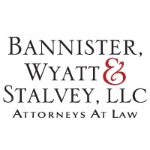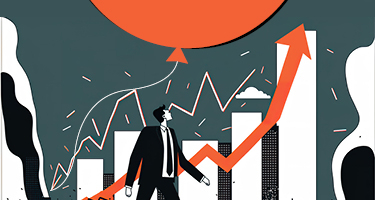Sometimes things in life just happen…and they aren’t always your fault.
Accusations, misunderstandings or simply being in the wrong place at the wrong time can lead to charges that could have life-altering consequences. This is where the importance of a skilled criminal defense attorney comes into play. In Greenville, South Carolina, Bannister, Wyatt & Stalvey, LLC has been offering compassionate service and relentless representation since 1976, helping individuals navigate the complexities of criminal law.
What Should I Do First If I’ve Been Arrested?
The first thing you should do if you’ve been arrested is to be quiet. You have the right to remain silent – use it!
You should also be as polite as possible and give South Carolina law enforcement any personal information they request, such as your name and driver’s license. Still, you don’t have any obligation to talk to any law enforcement.
From the moment you are stopped by South Carolina law enforcement, you are more than likely to be videotaped. If you are polite and keep quiet, you don’t run the risk of saying too much or saying the wrong thing. Remember, anything you say or do can be used against you in a court of law.
Along with being silent, you should contact one of our experienced Greenville, South Carolina criminal defense lawyers at Bannister, Wyatt, & Stalvey as soon as you can. Every minute counts, especially at the beginning of your criminal case.
Understanding Criminal Charges in South Carolina
The legal system in South Carolina, like in most states, categorizes crimes into misdemeanors and felonies. Understanding the difference between these two classifications is crucial, as it directly impacts the severity of the consequences one might face.
A misdemeanor is generally considered a less severe offense. It typically results in shorter jail time, often less than a year, and smaller fines. However, a misdemeanor can still have significant consequences, including a permanent criminal record that can affect your future employment and other opportunities. In contrast, a felony is a more serious offense that can result in harsher penalties, including longer prison sentences, hefty fines and long-term social and professional repercussions. In South Carolina, the Code of Laws outlines specific offenses that fall under each category, and while misdemeanors might seem less daunting, both felonies and misdemeanors require serious attention and a robust defense strategy.
Criminal Defense Specializations at Bannister, Wyatt & Stalvey, LLC
DUI Charges in South Carolina
Driving under the influence (DUI) is a common charge that many individuals in Greenville face. South Carolina law is strict when it comes to DUI offenses. There are two primary types of DUI charges: driving under the influence of alcohol and driving with an unlawful bodily alcohol content (BAC) of 0.08% or higher. A more severe charge, known as felony DUI, is applied when a DUI incident results in bodily injury or death. The penalties for these charges can range from fines and license suspensions to significant prison time, particularly in the case of a felony DUI.
Criminal Sexual Conduct Charges
Criminal sexual conduct charges are some of the most serious in South Carolina, with penalties that can include decades of imprisonment. The state categorizes these offenses into degrees, with the first degree involving the most severe circumstances, such as the use of aggravated force or incapacitating the victim with a controlled substance. Second and third-degree charges also involve sexual battery, with varying levels of coercion or force. These charges are highly sensitive and require a defense attorney who is not only skilled in the law but also compassionate and understanding of the delicate nature of these cases.
Homicide Charges
Homicide is perhaps the most severe charge one can face, with penalties ranging from years in prison to life sentences, or even the death penalty in cases of premeditated murder. South Carolina law differentiates between several types of homicide, including murder, attempted murder, voluntary manslaughter, involuntary manslaughter and reckless homicide. Each of these charges carries its own set of legal definitions and penalties. For example, voluntary manslaughter involves an unlawful killing in the heat of passion, while involuntary manslaughter is a result of criminal negligence. The nuances of these charges require an attorney who is well-versed in both the law and the specific details of the case at hand.
Expungements
One of the most valuable services that Bannister, Wyatt & Stalvey, LLC offers is assistance with the expungement process. Expungement is the legal process of destroying or sealing criminal records so that they are no longer accessible to the public or show up on background checks. This process is crucial for individuals who have been acquitted, had charges dismissed or completed their sentences for certain non-violent offenses. An expungement can give individuals a fresh start by removing the stigma of a criminal record, thus opening up new opportunities for employment, housing and other aspects of life.
However, expungement is not an automatic process in South Carolina. Even if someone qualifies for expungement, they must actively apply for it. The application process can be complex, requiring careful navigation of legal paperwork and procedures. The attorneys at Bannister, Wyatt & Stalvey, LLC have extensive experience in helping clients successfully obtain expungements, ensuring that they can move forward with their lives without the shadow of a past mistake.






























